Domhnall Ua Buachalla, Rebel and Last Governor General of Ireland
They say history belongs to the winners, but that’s only half the story. History also belongs to glory hounds. Those who trumpet their triumphs, those who seek to make sure that they are remembered. As for those who would as soon be forgotten, they often get their wish. Such would probably have been the case for Domhnall Ua Buachalla, except for the minor detail that this life-long Irish Republican and veteran of the Easter Rising was also the last official representative of the British Crown in Ireland.
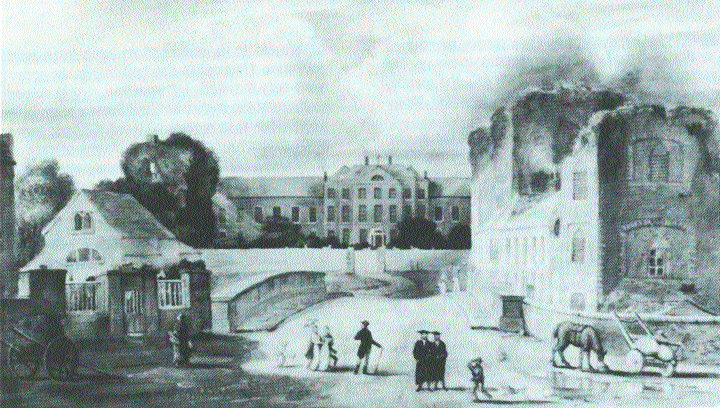
Domhnall Ua Buachalla was born in Maynooth in 1866. Due to the laws at the time it was effectively illegal to use anything but English for “official purposes” like recorded, so his name was officially registered as “Daniel Richard Buckley”. Since his father Cornelius was a fluent and enthusiastic Irish speaker he was raised with that as his first language, so he always regarded Domhnall as his “real” name. When circumstances forced him to use an English spelling he would always use “Donal”, the phonetic spelling of Domhnall, rather than Daniel.
This complicated linguistic dance reflects the equally complicated state of life in Ireland at the time. Later political opportunists have tried to divide it into a simple “Protestant and Catholic” dynamic, but there was often far more to it than that. Domhnall’s mother Sarah, for example, came from a Protestant Quaker family. Her father Joshua Jacobs became somewhat infamous in 1838 when he was expelled from the Society of Friends for his extreme beliefs. This also led to his estrangement from his first wife (Sarah’s mother). He then founded a sect known as the “White Quakers”. Newspaper reports at the time paint them as somewhat of a cult, but it was their refusal to pay taxes on religious grounds that ran them afoul of the law, along with an allegation that Joshua had stolen the inheritance of a pair of orphans in his care. Joshua eventually wound up marrying a Catholic woman (after Sarah’s mother had died) and converting to Catholicism. He died in Wales in 1877, when his grandson was 11, and it’s unlikely the two ever met.
Young Domhnall grew up in a country dominated by anger, anger towards an unjust system that seemed to be set up to profit from Irish suffering. The “Poor Laws” which had provided some relief from starvation during the Famine twenty years earlier included a clause which made farmers who owned their land give it up before they were considered “poor” enough, meaning that even more land wound up in the hands of the wealthy landlords. A growing movement for land reform dominated the country during the 19th century, with Irish identity and the Irish language becoming thoroughly tangled up in it.
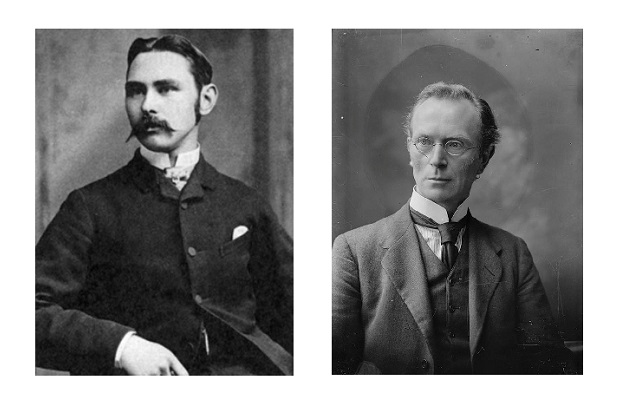
By the 19th century the traditions of Ireland had been eroded by cultural pressure from Britain (a semi-deliberate policy of “civilising” Ireland), enough that various associations sprung up to try to keep these traditions going. The most famous of these was the Gaelic Athletics Association, which is still active as a major sporting organisation to this day. More interesting to Domhnall was the Gaelic League, founded in 1893 by Eoin MacNeill and Douglas Hyde to promote the Irish language. It was not the first such organisation, but it was definitely the most popular. It was officially a non-political movement, but by its nature it brought together those who valued their Irish identity and who thus supported Irish self-rule in one form or another. The 26-year old Domhnall founded the Maynooth branch of the League, and became well-known for teaching Irish classes.
Domhnall had considered joining the Customs and Excise service, but when his father fell ill he took over the family business instead. He would continue to operate the store for the rest of his life. In 1897 he married Jane Walsh, who used the Irish form of her name – Sinead – after that. They honeymooned in Cork, which Dohmnall was profoundly unimpressed by. He wrote to his sister, saying:
Cork is a dirty, sleepy hole compared with Dublin. It looks well when seen from a particular point [of] about a mile or so. But don’t come nearer to it.
In 1905 Domhnall became caught up in a wave sweeping the country of people being prosecuted for having the Irish form of their names written on their delivery carts. The law specified that delivery vehicles had to be labeled “legibly”, and it was the official legal position of the British government that Irish was by its nature “illegible”. The most famous such case was that of Niall Mac Giolla Bhrighde, a farmer, poet, and songwriter from Donegal. He was fined a shilling for his “illegible” name and then another shilling when he refused to pay. The Gaelic League sponsored his appeal to the King’s Court in Dublin where he was defended by Pádraig Pearse. Pearse lost the case, in a verdict which he later described as “…it was in effect decided that Irish was a foreign language.”
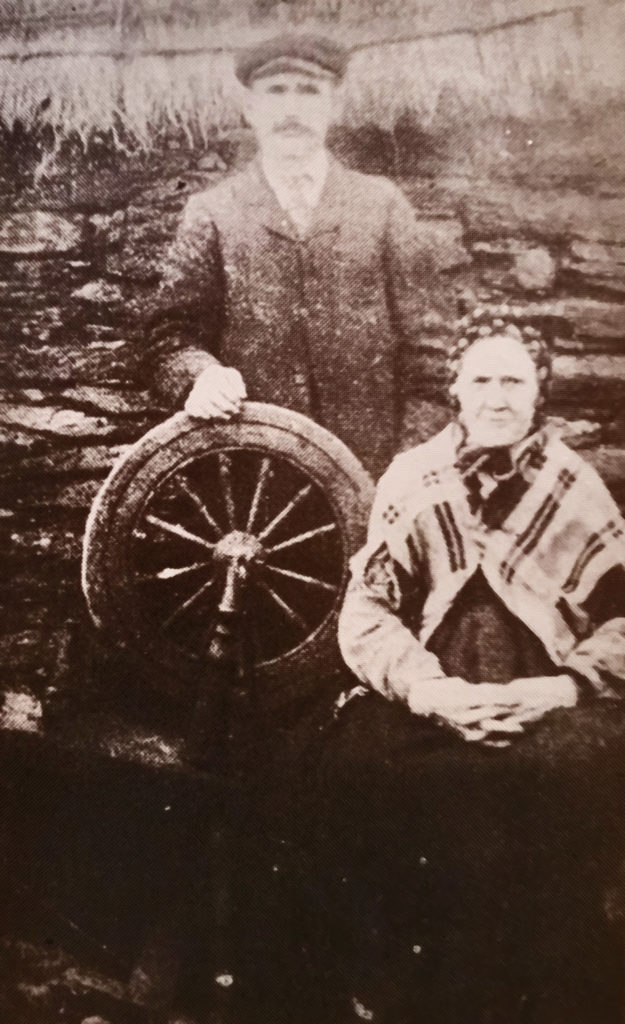
Domhnall also refused to pay his fine, which resulted in goods from his shop being seized to cover it. There’s a well-known story that the goods were put up for auction, but there was a conspiracy where only one person bid on them. He got them for a pittance and immediately returned them to Domhnall. There’s also a story that Domhnall was also defended by Pearse, but that doesn’t line up with the story that the Niall Mac Giolla Bhrighde case was the only one Pearse ever defended in court. Whether or not Pearse defended Domhnall the two men were definitely friends. They knew each other through the Gaelic League, and Domhnall sent his son Joe to attend Pearse’s Irish-language school. It might even have been Domhnall who recruited Pearse for the Irish Republican Brotherhood – or it might have been the other way round.
The IRB was founded in the aftermath of the Young Irelander Rebellion of 1848. This was in response to the great wave of revolutions sweeping Europe at the time, though it was largely a dud with there being a single clash between the rebels and the police before it collapsed. The main consequence was that a young man named James Stephens fled Ireland to avoid arrest and settled in Paris. This was a city that had a deep culture of revolution, and here James learned about how to organise a successful secret society. He learned about inductions and oaths, cell structures and counter-intelligence. Armed with this knowledge he founded the Irish Republican Brotherhood. [1]
The IRB came to Ireland in the 1860s, and around the time Domhnall was born his father Cornelius became a member. Fifty years later it was old news, and had largely stagnated. Around 1905 though younger men began to join, and by the time of the outbreak of World War 1 the Brotherhood had renewed itself into a new energised organisation. The previous year they had arranged for the foundation of the “Irish Volunteers”, a response to the Unionist “Ulster Volunteers”. At the time it looked like the inevitable course of history in 1914 was that the British government would pass Home Rule, the Unionists would revolt, and then the British Army would refuse to fight them. The Volunteers were created to fight in their stead. Of course, then the assassination of an Austrian nobleman led to a chain of events that plunged all of Europe into war. Home Rule was no longer a priority.
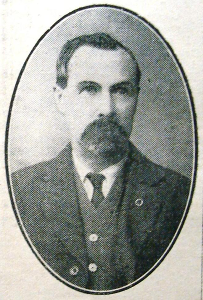
Of course, by now the Irish Volunteers had got weapons and organisation, even if they didn’t have an impending civil war to worry about. “England’s difficulty is Ireland’s opportunity” became their watchword. Domhnall had organised a Maynooth branch of the Volunteers, making his own bullets for their weapons and leading their secret training drills. His old friend Padraig Pearse was both a member of the IRB’s Supreme Council and the Director of Military Organisation for the Irish Volunteers. He was part of the group who made contact with Roger Casement (who was trying to recruit German support for an Irish revolution) and arranged for a shipment of guns to be made to arm the Volunteers for a rebellion on Easter Sunday. The weapons were intercepted by the British Navy and never arrived, leaving things in a state of confusion.
On the morning of Easter Sunday the Maynooth Volunteers mustered at Domhnall Ua Buachalla’s hardware store. The 21 men had the job of cutting off the telephone and telegraph lines from Dublin to the military camp at the Curragh in Kildare. They were also to destroy the railway line so that once word did reach the forces there they would be delayed in reaching Dublin. Before they could set out, a message arrived from Eoin MacNeill (the co-founder of the GAA, who was also the official head of the Volunteers) ordering them to stand down. MacNeill did not think they could succeed without Casement’s guns. The men were discussing this when a message sent from Pearse to Domhnall arrived, telling them to disperse and await further orders. He would never have a chance to send those orders.
The following day word reached Maynooth around the afternoon of fighting in Dublin. Domhnall cycled into Dublin, avoiding any trouble from the authorities since they did not think of a fifty year old man as a potential “rebel”. He didn’t manage to contact anyone but when he got back to Maynooth he and the other Volunteers decided to head to Dublin and join the Rising. They made their way to Dublin through Blanchardstown and slept that night in Glasnevin Cemetery.
The next day they reached the GPO, the headquarters of the Easter Rising. They were greeted by James Connolly and Padraig Pearse, who told them of the situation in the city. At Pearse’s request the Maynooth men, led by Domhnall, mounted a sucessful rescue of a group of rebels who had been cut off in City Hall. This was a great boost to the spirits of the men in the GPO. Since Pearse trusted Domhnall and knew that he was a good shot he sent him on several such missions during that fateful week. Domhnall disliked talking about his own exploits, but reports of those who accompanied him say that he killed at least three British soldiers during these missions.
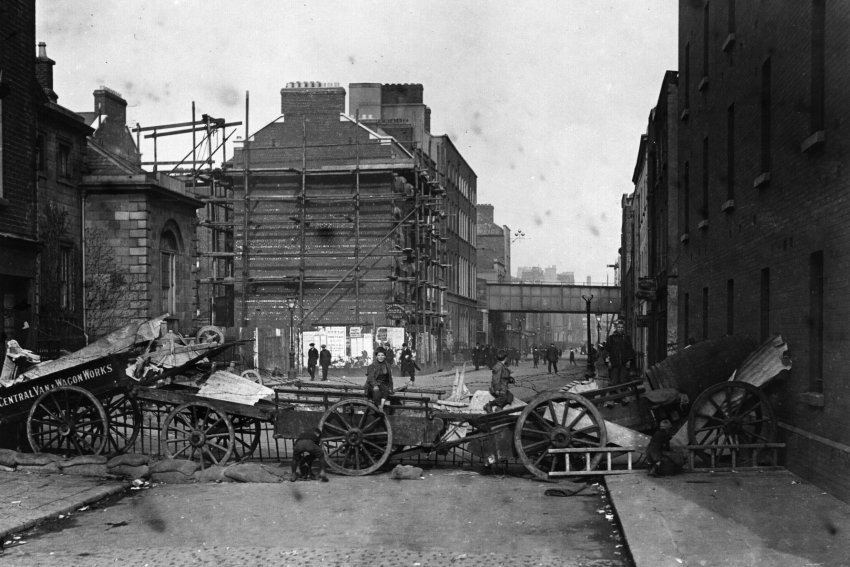
Ironically if the Maynooth men had fulfilled their original mission on Easter Sunday, it might have helped to delay the end of the Rising. In the end though the British were able to pour troops into the city through the ports and along the railway lines. By Wednesday there were 16,000 troops in the city, outnumbering the rebels fifteen to one. On Saturday the rebel leaders at the GPO surrendered, leading to an end in fighting in the city. Domhnall was one of those captured at this point, but luckily for him he was not identified as a leader in the Rising. As such he was not one of the fifteen leaders who were executed after a swift trial of dubious legality. Instead he was held first in an Irish prison and then in a Welsh internment camp. He was released in December of 1916, thanks in part to public outcry after the executions.
One other outcome of the Rising was the elevation of Sinn Fein as the core party of Irish republicanism. This was due to an odd bit of self-fulfilling rhetoric. Despite the fact that Sinn Fein were a small party with no direct connection to the Rising, they were still blamed for it by a British press that had no interest in understanding the situation. This then meant that supporters and veterans of the Rising flocked to join Sinn Fein, and in fact basically took over the party. Domhnall was one of those supporters, and in 1918 he stood for election in Kildare North as a Sinn Fein MP. (He was reluctant to stand, especially since his wife Sinead had died only a few months earlier, but he decided it was his duty to do so.)
The election of 1918 was heavily influenced by the Rising and the reaction of the authorities to it. Prior to that point Irish nationalists had generally voted for the Irish Parliamentary Party, who advocated for Home Rule. Following the Rising most nationalists no longer believed that Home Rule was a goal worth aiming for. Instead they voted for the party that advocated for Irish independence, Sinn Fein. The result was that Sinn Fein won 73 out of 105 Irish seats, 67 of which they took from the IPP. One of those was Kildare North.
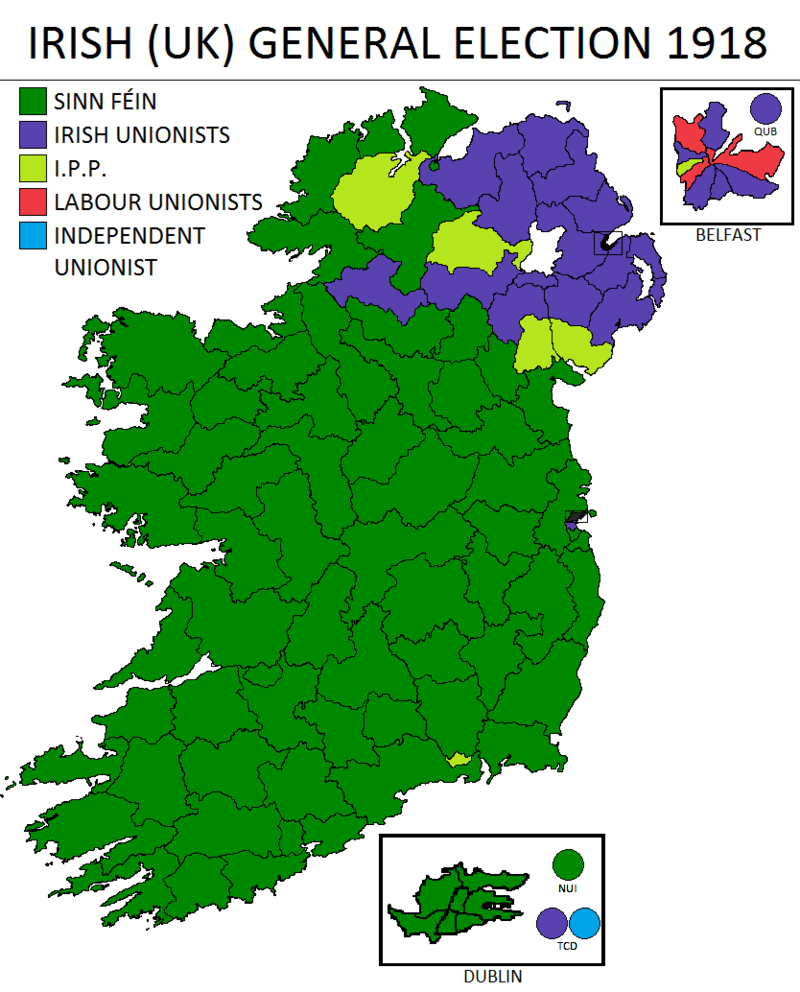
Following the election Sinn Fein MPs like Domhnall refused to take their seats in Parliament, in part because this would have required them to take an oath of allegiance to the King. Instead 27 of their elected representatives assembled in Dublin and declared themselves the first parliament of an independent Ireland: “Dáil Éireann”. There would have been more of them, but 33 of the elected Republicans were in prison at the time. (That includes Constance Markievicz, the first women elected as a member of parliament in both British and Irish history.) At the time the government refused to recognise the Dáil, but nowadays this is officially considered to be the first iteration of the body.
The declaration by the first Dáil coincided with the “official” start of the Irish War of Independence. The Irish Volunteers had been reformed into the Irish Republican Army, and on the same day as the formation of the Dáil they attacked a group of police officers, killing two of them. This began two years of guerrilla warfare which Domhnall was an active participant in, along with his son Joe and his daughter’s husband Mick O’Neill. The heavy British Army presence in Kildare made it quieter than the rest of the country but there was still action including attacks on Maynooth Town Hall as well as intelligence gathering on troop movements. Right at the end of the war a major attack was planned on a troop train but it ended in a disaster when they were detected right before their attack. Fortunately for them this came right at the point of a ceasefire being declared in the war, which saved them from reprisals.
1921 was the year that Irish independence was formally established, along with the election of the Second Dáil. Dohmnall stood for Sinn Fein again and was elected again. Like many in the Republican movement though he was unhappy with the Anglo-Irish Treaty that had established the “Free State”. It left Ireland as a part of the British Empire for starters. But the most controversial part was that it ratified the partition of Ireland, allowing the six north-eastern counties to opt out of the new Free State and rejoin the United Kingdom. This created tensions that resulted in a 1922 election where “Pro-Treaty Sinn Fein” ran against “Anti-Treaty Sinn Fein”. Domhnall stood for the anti-treaty party and was defeated. This election didn’t diffuse the tension between the two factions, and a civil war broke out in the summer of 1922.
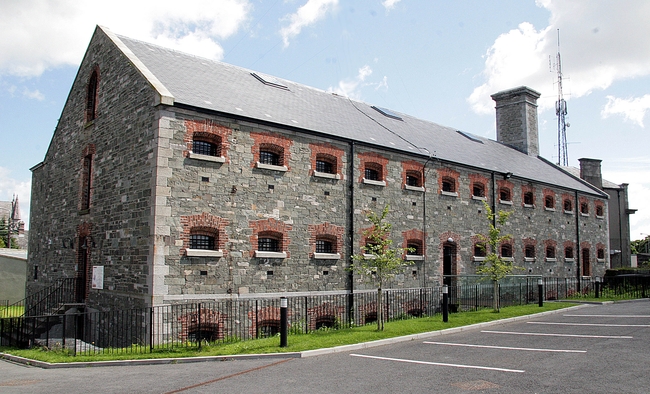
As a former TD and veteran of the Rising, Domhnall was enough in the public eye that he was among those arrested in the early days of the war while he was mobilising with the anti-treaty forces. He was imprisoned in Dundalk, alongside several hundred other men. One of those men was Frank Aiken, who had been the commander of the military base there up until the 16th July. He had tried to stay out of the Civil War, but the large number of anti-treaty troops on the base led another commander to mount a takeover of the base and arrest all those who wouldn’t formally join the pro-treaty side.
On the 27th July a group of men who had fought beside Aiken in the War of Independence bombed a wall of the prison and rescued several men, including Frank Aiken. Two weeks later Aiken returned, blowing open the gates of the military base and leading an assault that resulted in the anti-treaty forces seizing the town. The prisoners, including Domhnall Ua Buachalla, were released. Domhnall headed back to Dublin, as he was a bit too old (at 56) for the countryside guerrilla fighting that the war became. He spent the next few months in hiding before he was recognised and arrested in early 1923.
Domhnall was an an internment camp as the Civil War gradually wound down to an end. After most of the anti-treaty leadership were either captured or killed and it became clear the war was unwinnable, Frank Aiken (who had succeeded to the leadership of the anti-treaty forces) declared a ceasefire. Most of the anti-treaty forces were interned alongside Domhnall, and it was months or even years before they were released.
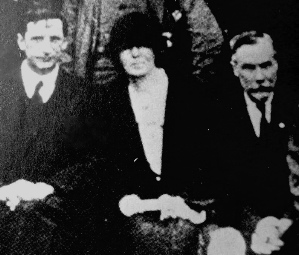
In 1926 Eamonn de Valera, the leader of Sinn Fein who Domhnall had fought beside in the Easter Rising, founded a new political party. Part of the conditions of the Treaty had been that TDs and Senators had to swear an oath of allegiance to the Crown, so Sinn Fein members had refused to take their seats. Now that the oath was being removed, there was dispute as to whether this meant that they could take their seats now or if they still refused to accept the Free State as legitimate. When the party’s annual conference passed a motion that they should not take their seats, those who disagreed left and formed a new party called Fianna Fail. De Valera was their first leader, and his old friend Domhnall Ua Buachalla was a founder member.
Domhnall was among those elected as TDs for the new party in the 1927 election. The oath of loyalty was actually still in effect at this time, but having gone to the effort of splitting from Sinn Fein it was decided that the Fianna Fail members would still take their seats in the house. (The party leadership officially declared the oath “an empty formula”.) They won 44 seats out of 153, the majority taken from Sinn Fein. This established them as the largest opposition party, and over the next five years they worked to consolidate their position and legitimise themselves.
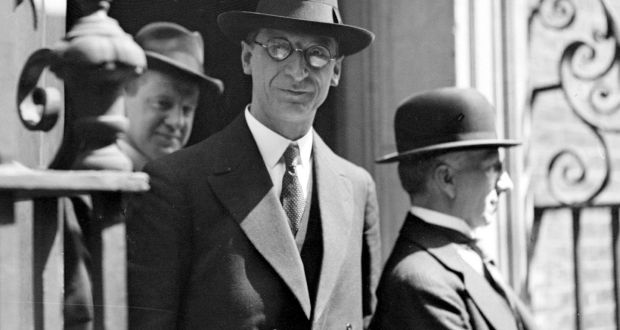
Fianna Fail won a majority in the 1932 elections, aided by the effects of the Great Depression, which helped to turn people against the government. Domhnall, however, lost his seat. As compensation de Valera appointed him as the head of a commission investigating conditions in the Gaeltacht, areas of Ireland where it was officially recognised that Irish was the first language. This meshed well with Domhnall’s own interests, and he was happy to step out of the public eye. He had never really been happy with his position as a TD, and had always disliked public office. He had no idea that de Valera was about to ask him to take on the most public office in the country.
The separation between Ireland and Britain was a messy one. The new Irish government wanted to establish a Republic, free of all ties to the former occupiers. The British were ideologically opposed to giving up territory that easily though, and the most they were prepared to concede was independence within the British Empire. The new Irish Free State was a “Dominion of the British Empire”, another facet of the Anglo-Irish Treaty that had provoked the civil war. The best that the government could do was copy the rules of another dominion, Canada, which had achieved “de facto” independence. The representative of Empire there was largely ceremonial, and Ireland copied the same language over into its own constitution. That was why they created the same office for that representative: Governor-General.
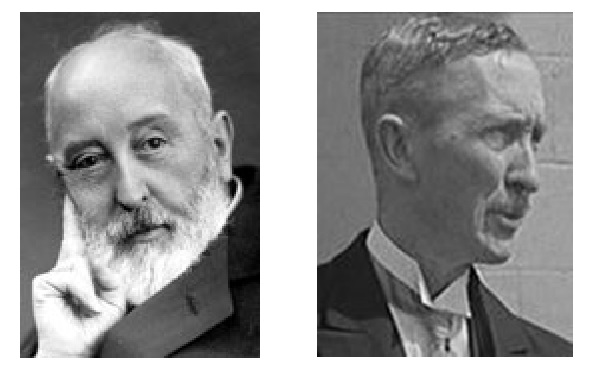
The first governor-general of the Irish Free State was Tim Healy, a former MP who had campaigned for Home Rule but opposed partition. He was trusted by the Irish government, but his first loyalty was always to the British Government. Healy was succeeded by James McNeill, one of those who had drafted the Free State’s constitution. McNeill found himself in an awkward position in 1932 when Fianna Fail were elected, as he was now the constitutional figurehead of a government that actively wanted to get rid of him. After several deliberate humiliations of him by government ministers and a public feud with de Valera, McNeill resigned a month before the end of his term.
De Valera was left to decide who to appoint as the new governor-general. He wanted someone who would take the job but be willing to stay completely out of the public eye. The self-effacing Domhnall Ua Buachalla, who had only reluctantly been pulled into the office of TD, was perfect. It was just a bonus that this meant the governor-general would be an outspoken Irish nationalist who had been arrested for armed rebellion against the crown. The request came as a great shock to Domhnall, and it took him several weeks to decide on an answer. Eventually, swayed by his friendship and faith in de Valera, he agreed.
As a mark of his intentions, when Domhnall swore an oath of loyalty to King George V as part of assuming the office he did so in Irish. Once in the job (which he always referred to as “Seanascal”, the Irish equivalent of the role) he and de Valera conspired to keep his public appearances to the bare minimum. He was supposed to dissolve the Dail, pass on proclamations from the King, and appoint members to the “Executive Council”. The council was where all the power vested in his role was passed on to, and de Valera’s official title was “President of the Executive Council”. In order to reduce his pubic profile further, Domhnall did not take up residence in the Viceregal Lodge (nowadays better known as “Aras an Uachtarain”) but rented a house in Monkstown. This would later cause issues.
Exactly what de Valera’s long term plan was is up for debate, but in 1936 a golden opportunity fell into his lap. When King Edward’s plan to marry Wallis Simpson resulted in his being forced to abdicate the throne of England it caused a constitutional crisis throughout the Empire. All of the member states had to assent to the abdication. Ireland took advantage of this to pair its assent with formally exiting the Empire, becoming a republic. [2] As a result in December of 1936 Domhnall had the pleasure of signing a bill that officially abolished his job.
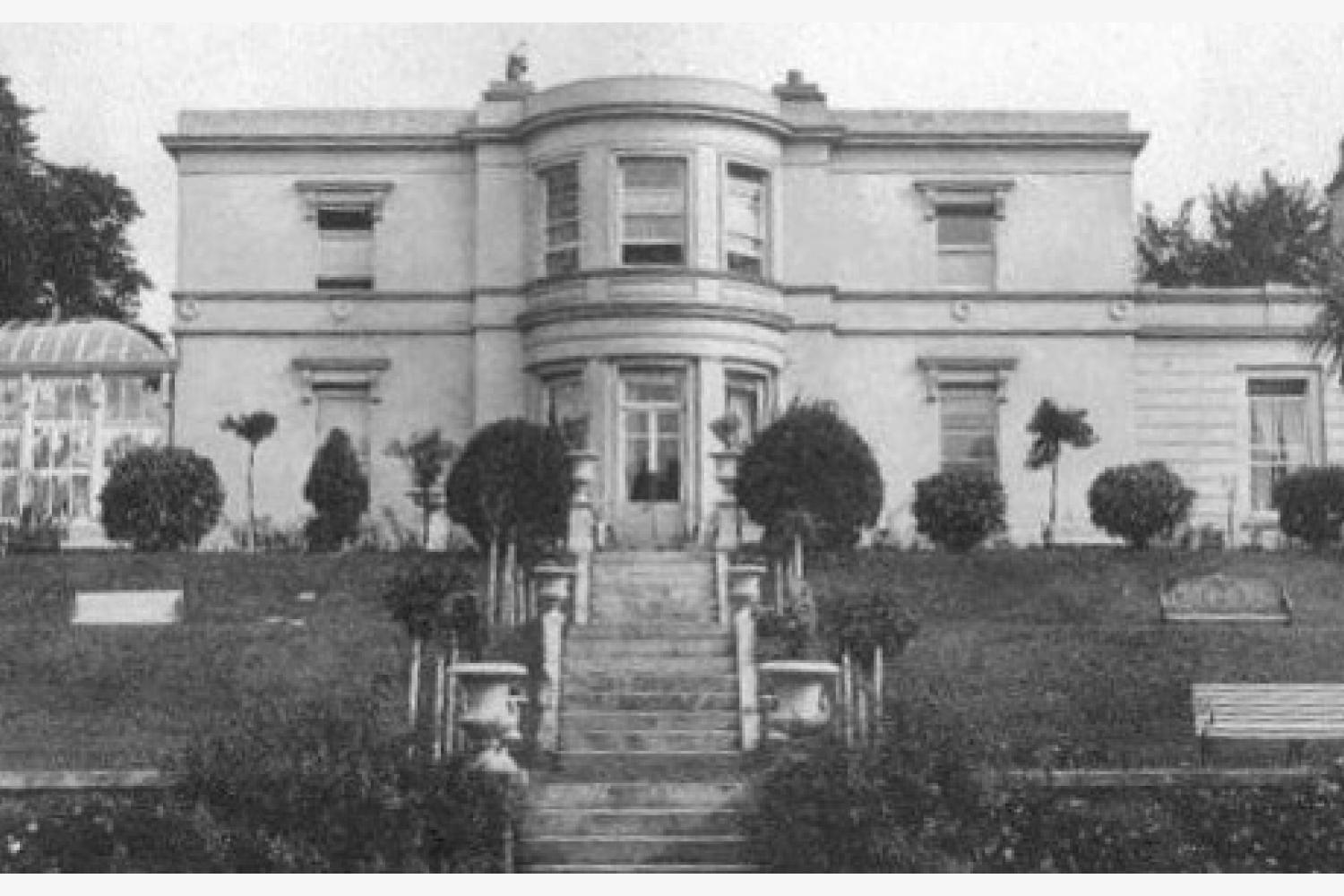
This did lead to a rift between Domhnall and de Valera though, which stemmed from that house in Monkstown. Domhnall had rented it on a five year lease, with the understanding that the Irish government would cover the cost. (This was part of an arrangement where he only claimed £2000 of his £10,000 a year salary in order to devalue his position.) When the position was abolished eleven months before that lease expired, the government told him they were not going to pay the remainder of his rent. Domhnall wound up threatening them with a court case, and in order to avoid the public scandal they were forced into a generous settlement.
Domhnall attended the inauguration of his “successor” Douglas Hyde, the first President of Ireland. After that he retired from public life, concentrating on running his hardware store in Maynooth and on local cultural events. He became well known as a letter writer to Irish newspapers, frequently voicing his concern about the influence of foreign culture on the Irish way of life. He and de Valera reconciled, enough that when Dev became President himself in 1959 he appointed Domhnall as a member of his advisory council. This was largely a symbolic gesture though, as Domhnall was in his 90s by this point. He died four years later in 1963 and was given a state military funeral, recognising his status as a veteran of the Rising. Nowadays despite his accomplishments he is mostly an obscure figure, with his name known to few in the country he was once officially in charge of. One suspects that’s exactly the way the eternally modest Domhnall Ua Buachalla would have preferred it.
Images via wikimedia except where stated.
[1] The Fenian Brotherhood, founded a couple of years earlier in America by another Young Irelander refugee, got a lot more press (to the point that “Fenian” became a synonym for “Irish rebel”). This was partially due to the fact that it could operate more in the open, but was mostly due to its main purpose of raising funds to support the IRB.
[2] This actually proved quite tricky legally, and it wasn’t until 1949 that Ireland was unequivocally separated from the British crown.
